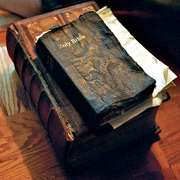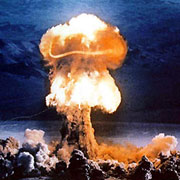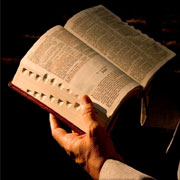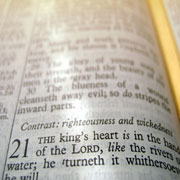

Custom Search
Are we Living in the Last Days...End Times? See Breaking News |
 |
| __________________________ |
 |
________________________ |
| ________________________ |
As You Study the Biblical Last Days in the News... Discover the Bible As Well |
 |
| ________________________ |
 |
| ________________________ |
 |
| ________________________ |
To Know God's Word Read Scripture |
 |
_______________________ |
To Read God's Word Your Reading Schedule |
 |
_______________________ |
 |
| _________________________ |
Thought Provoking Articles for Your Meditation |
 |
_______________________ |
A. Introduction , The Call of Jeremiah |
|
|---|---|
Jeremiah 1:1-3 An introduction to Jeremiah is given |
|
Jeremiah 1:11-19 Two Visions are seen. God was "watching". Boiling pot facing away from the North. |
|
B. Prophecies Against Jerusalem and Judah |
|
Jeremiah 2-20 In the Reign of Josiah and Jehoikim |
|
Jeremiah 2-6 God's People are Doing Wrong |
|
Jeremiah 2:1-13 Story of a marriage gone wrong…a metaphor for people turning away from God. |
|
Jeremiah 2:14-19 Their wickedness will lead to disaster. |
|
Jeremiah 2:20-28 The consequences of breaking their covenant with God are seen. |
|
Jeremiah 2:29-37 The people have no defense whatsoever. |
|
Jeremiah 3:1-5 Can reconciliation still happen? “You have done all the evil you could do" |
|
Jeremiah 3:6-11 Faithless Israel (north) was less guilty than faithless Judah (south). |
|
Jeremiah 3:12-18 Still the Lord issues a call for reconciliation. |
|
Jeremiah 3:19-4:4 What is required for true reconciliation. Renewed pledge of loyalty is described. Refrain from worshiping other gods. Be faithful to the Lord. Recognize their failings. |
|
Jeremiah 4:5-10 Disaster is coming from the North. |
|
Jeremiah 4:11-18 Judgment is upon them. |
|
Jeremiah 4:19-28 Jeremiah's inner torment is described. |
|
Jeremiah 4:29-5:9 The people have no excuse "Shall I not avenge myself on a nation such as this"? |
|
Jeremiah 5:10-3 A community under judgment is seen. They have chosen to go it alone and have forsaken the Lord. The religious leaders are no leaders at all. |
|
Jeremiah 6:1-8 Jerusalem will be a death trap. |
|
Jeremiah 6:9-15 The people are falsely confident. They proclaim "peace, peace. When there is no peace". |
|
Jeremiah 6:16-2 The people deliberately reject the salvation offered to them. Instead, they have chosen death. |
|
Jeremiah 6:22-30 The role of the prophet. Jeremiah is to "refine and test" them. |
|
Jeremiah 7-8 False Religion |
|
Jeremiah 7:1-15 Jeremiah's Temple Sermon (probably given in 609 after Josiah's death). He calls for a radical change in lifestyle. If they don't heed his words, the temple will not be a refuge for them. |
|
Jeremiah 7:16-20 God's word to Jeremiah. "The time for praying is over". |
|
Jeremiah 7:21-28 The people have been faithless since they came out of the land of Egypt. |
|
Jeremiah 7:29-8:3 Grim words that describe the end days are given. |
|
Jeremiah 8:4-10:25 A Disobedient and Corrupt People |
|
Jeremiah 8:4-12 People are willfully turning away from God and embracing false gods. They are racing headlong towards destruction and refusing to be saved. They have no shame and there will be no remnant. |
|
Jeremiah 8:13-9:1 Despair and anguish. The people voice their despair - they know all is lost. Jeremiah voices his anguish - "Is there no balm in Gilead"? |
|
Jeremiah 9:2-11 Jeremiah's continued lament. He is sickened by their behavior. |
|
Jeremiah 9:12-22 Another sermon that explains the reason for the coming destruction. The people have been disloyal to God. He invites the professional mourners to begin their rites. |
|
Jeremiah 9:23-10:16 An interlude addressing the challenge of right living. Let people glory in the knowledge of the Lord. Pagan worship is pointless…idols can do no evil, but do no good either. |
|
Jeremiah 10:17-25 Tragedy is looming. Responsibility lies with the leaders, the "shepherds". |
|
Jeremiah 11-20 Jeremiah's actions and Inner Struggles |
|
Jeremiah 11:1-17 A preaching mission. Is told to tell the people the "words of the covenant". They have not kept their requirements…the curse of the covenant is upon them. Again, he is told the time for prayer has passed. |
|
Jeremiah 11:18-12:6 Jeremiah's prayer…raw and candid. His kinsmen in Anathoth are plotting against him. He turns to God and asks why the wicked prosper while he suffers. It's the age-old question (think of Job). Answer is disquieting…things will get worse, before they get better. But Jeremiah's spiritual strength will be up to the task. He must hold on in faith; God will be with him. |
|
Jeremiah 12:7-17 God laments the devastation that has come upon the nation. Foreign nations are the instrument of God's destruction. After the destruction, there will be new compassion. The final word is never "no". |
|
Jeremiah 13:1-14 The linen waistcloth. God told him to hide a brand new waistcloth. When he was told to retrieve it, it was spoiled. Metaphor for people who claimed special privilege with God but defied him. They, too, are spoiled. Reference to wine jars might indicate most people were in drunken stupor. |
|
Jeremiah 13:15-27 A final warning. He gives a realistic assessment: People are on a path they cannot change. "How long will it be before you are made clean"? |
|
Jeremiah 14:1-16 A crisis of national proportions. Famine and the sword will affect every aspect of life. False prophets are giving false hope…will be consumed as well. |
|
Jeremiah 14:17-15:4 Additional laments are seen. A description is seen of military defeat is to come and consequences (grim). Nothing can change God's mind now. |
|
Jeremiah 15:5-9 No one will have pity on Jerusalem. Images of the conquest are described. |
|
Jeremiah 15:10-21 Jeremiah's response is one of deepest emotion. Everything is going wrong; he's filled with despair. Passage ends with a word of encouragement. Life will not be easy, but God will be present to restore…redeem. |
|
Jeremiah 16:1-13 Normal aspects of life will come to an end. People will not marry, see their children grow up, or be buried at the end. When people ask why, he should say that they have forsaken the Lord. They will be "hurled" out of the land and God will show them no favor. |
|
Jeremiah 16:14-21 Then a new day will come. There will be another deliverance (much like the Exodus). The people will know the name of the Lord. |
|
Jeremiah 17:1-4 The people's sin must be reckoned with. |
|
Jeremiah 17:5-8 Their choice: trust in man or trust in God. |
|
Jeremiah 17:9-13 The human mind is unpredictable and often devious. Only God can come to their aid |
|
Jeremiah 17:14-18 A cry from Jeremiah.” Heal me and I will be healed; save me and I will be saved." No doubt, people mocked his words and ridiculed him. Ends with a cry for vengeance, but God do not respond. |
|
Jeremiah 17:19-27 Interlude on proper Sabbath worship and behavior. |
|
Jeremiah 18:1-12 Illustration of the potter's workshop. Potter has total control over the work of his hands. Could be a message of hope or judgment. |
|
Jeremiah 18:13-17 Even the nations see Israel's bad behavior. Illustrations from nature make the point. |
|
Jeremiah 18:18-23 People's response to Jeremiah is to discredit and silence him. Jeremiah cried for renewed vengeance against them. |
|
Jeremiah 19:1-13 Illustration of the broken jar. Was told to take priests and elders, break the jar in their sight. A broken jar cannot be fixed. |
|
Jeremiah 19:14-20:6 Jeremiah preaches in the temple with harsh consequences. Chief officer of priests takes his vengeance against Jeremiah. Arrested him and put him in stocks overnight didn't like his message. Jeremiah responds with a word of judgment against the chief officer. |
|
Jeremiah 20:7-13 The inner struggle of proclaiming a word no one wants to hear. First expresses doubts about his task. Then proclaims a song of praise. |
|
Jeremiah 20:14-18 Then back to the depths of despair. "Cursed be the day on which I was born". |
|
Jeremiah 21-39 Various Periods until Jerusalem’s Destruction |
|
Jeremiah 21-23 Kings and Prophets |
|
Jeremiah 21:1-7 Delegation from king asked him to inquire of the Lord. Responded that not only would devastation come but also the Lord would be behind it all. Kings would be given over to the king of Babylon. |
|
Jeremiah 21:8-10 Another choice: choose the way of life or the way of death. |
|
Jeremiah 21:11-14 Interlude: Warning for the House of David. |
|
Jeremiah 22:1-9 Speech at the royal palace. Stinging words that hold the king accountable for his decisions. |
|
Jeremiah 22:10-19 Comment on kings after Josiah's death. Shallum - son of Josiah, deposed by the Egyptians. Jehoiakim - A self-indulgent despot. (Jehoiakim hated Jeremiah). Stern words of judgment are given. |
|
Jeremiah 22:20-23 Interlude on coming fate of Jerusalem. |
|
Jeremiah 22:24-30 Coniah son of Jehoiakim was also ineffective. |
|
Jeremiah 23:1-8 Prophecy against the nations. "I will raise up for David a righteous Branch". |
|
Jeremiah 23:9-15 The land is filled with adulterers. Jeremiah's heart is broken. |
|
Jeremiah 23:16-22 God does not send false prophets - Do not listen to them! Do not listen to words of hope - There is no hope. |
|
Jeremiah 23:23-32 There is a difference between dreams and God's words. "Am I a God at hand…and not a God afar off?" Prophets who tell their dreams do not profit the people at all. |
|
Jeremiah 23:33-40 Lying prophets speak empty words of comfort. |
|
Jeremiah 24:1-25:38 Words of hope as well as judgment. |
|
Jeremiah 24:1-10 During the exile, a vision of good and bad figs. Good figs are like the people exiled to. Babylon. Bad figs are like the leaders and others who escaped the exile. |
|
Jeremiah 25:1-14 Looking back at history and then towards the future. Acknowledgement that his ministry failed. Yet confident that God's purposes will be revealed. |
|
Jeremiah 25:15-29 The cup of wine as a symbol of judgment. Both Israel and the other nations will drink from this cup. |
|
Jeremiah 25:30-38 The case against the nations. They will be tried and found guilty. |
|
Jeremiah 26-29 The Controversy With False Prophets |
|
Jeremiah 26:1-16 The Temple Sermon revisited (mentioned in 7:1-15). After delivering the sermon, Jeremiah was arrested (mob rule). He challenged the princes and the people to amend their ways. They were free to do whatever they wanted to him. They let him go. |
|
Jeremiah 26:17-24 Three different prophets with three different messages. Justified acquittal by remembering the prophet Micah of Moresheth. His life was spared despite delivering a difficult message. Jehoiakim on the other hand, killed Uriah, the son of Shemaiah. Jeremiah was not put to death, possibly due to having the right friends. |
|
Jeremiah 27:1-15 Appeal and warning to foreigners Illustration using thongs and yoke-bars around his neck. Point was that kings would be under the yoke of Babylon. (At that time, kings were hoping for a successful revolt). God did not send prophets who spoke that message. |
|
Jeremiah 27:16-22 More false promises from the false prophets are given. Jeremiah appeals to priests and people not to be misled. |
|
Jeremiah 28:1-11 Conflict with the prophet, Hananiah. Hananiah prophesied that exile would last two years. Jeremiah disagreed - Said history would determine who prophesied correctly. Then Hananiah breaks Jeremiah's yoke to make his point. In theory, Hananiah looked like the "winner". |
|
Jeremiah 28:12-17 A final word. Jeremiah was to tell Hananiah that the Lord would make the wooden bars iron. Hananiah's message was false. A record of the death of Hananiah is told. |
|
Jeremiah 29:1-23 Jeremiah's letter to those in exile. "Build houses and live in them; plant gardens and eat their produce". Time in Babylon will extend for 70 years. After that time, the people will seek the Lord and He will be found. (Many believed that exile was a temporary state and were plotting with those left behind to rebel against Babylon. Prophets were particularly keen on this.) Jeremiah said prophets would be put to death for their false words. Insists that the exiles must find God in Babylon. True faith is praying to a God who hears, not a God confined to a particular location, for example the Temple. |
|
Jeremiah 29:24-32 More letters. Those in exile wondered why Jeremiah was still alive after his harsh words. He responds by telling people not to listen to false prophets (in this case, Shemaiah of Nehelam). |
|
Jeremiah 30-33 The Book of Consolation |
|
Jeremiah 30:1-11 A message of hope. The day will come when God's people will be restored. |
|
Jeremiah 30:12-17 People have been stripped of all their resources. One day they will be ready to turn to God. |
|
Jeremiah 30:18-24 The restored community will owe its renewed existence to God. "You will be my people and I will be your God". |
|
Jeremiah 31:1-14 God's faithfulness is affirmed. There will be a joyful homecoming as people are brought from afar. The Lord will keep his people as a shepherd keeps his flock. |
|
Jeremiah 31:15-26 Time for weeping is over. Life should return to normal and God's blessings will return. |
|
Jeremiah 31:27-34 Issue of personal responsibility: Children will not suffer for the sins of their fathers. The Lord will make a new covenant with Israel and Judah. "I will put my law within them, and I will write it upon their hearts; and I will be their God, and they shall be my people." |
|
Jeremiah 31:35-40 God is not powerless and He has not forgotten them. |
|
Jeremiah 32:1-15 The fate of Zedekiah. Jeremiah buys land to illustrate that land will be bought and sold again in Judah. Indicates that the people will have a future. |
|
Jeremiah 32:16-44 Jeremiah's prayer of praise. God's response chronicles reasons for destruction and promise for later renewal. |
|
Jeremiah 33:1-13 Continued words of hope are given. City will be destroyed; city will be restored. |
|
Jeremiah 33:14-26 Renewal of promise to House of David. Righteous Branch will be chosen. Promise to David and Jacob as secure as cycles of day and night. |
|
Jeremiah 34-39 Historical Information With Respect to Jehoiakim and Zedekiah |
|
Jeremiah 34:1-7 The time is roughly 588 BC. Tells Zedekiah that the city is doomed. He will not die in battle, but in peace (in exile). |
|
Jeremiah 34:8-22 The community frees slaves in accordance with provisions in law. Immediately turned around and reinstated them. Seen as an affront to God's covenant; judgment is around the corner. |
|
Jeremiah 35:1-19 Goes back ten years to an example of one faithful family, the Rechabites. They were faithful to the promises made to their father, will be rewarded. |
|
Jeremiah 36:1-26 Banned from the temple, Jeremiah dictated the words of the Lord to Baruch, who wrote them on a scroll. Baruch went to the temple and read it aloud. The princes determined to take the scroll to king Jehoiakim. Upon hearing it, he had it burned. He then sought the lives of Baruch and Jeremiah, but they were in hiding. |
|
Jeremiah 36:27-32 Jeremiah dictated the words of the Lord a second time. Included words of judgment against the king |
|
Jeremiah 37:1-10 Back to Zedekiah. He requests Jeremiah to pray for them (588 BC). Word comes back from Jeremiah that it is too late. |
|
Jeremiah 37:11-21 Imprisonment: Prior to the final siege, Jeremiah traveled to Benjamin where he was arrested on a charge of desertion. King Zedekiah had him brought to Jerusalem and inquired of the word of the Lord. Jeremiah repeated God's inevitable judgment and asked not to be sent back to prison. He was then placed in the court of the guard (state run prison). |
|
Jeremiah 38:1-13 Second version of imprisonment. Hoping to deter his preaching, princes charged Jeremiah with treasons and put him in a cistern to die a lingering death. King's eunuch convinced king to get him out. Includes a tender description of his rescue, but he is again placed in the court of the guard. |
|
Jeremiah 38:14-28 Second interview with the king. Jeremiah bargains for his life; tells the king to surrender to Babylon |
|
Jeremiah 39:1-18 After an 18-month siege, Jerusalem fell. Nobles and princes were killed; Zedekiah was taken to Babylon. Jeremiah was saved, as was the eunuch who had earlier saved his life. Description is graphic and grim. |
|
Jeremiah 40-45 After the Fall of Jerusalem |
|
Jeremiah 40:1-6 Babylonians released Jeremiah. They apparently had heard his message, possibly thought he was pro-Babylon. Allowed him the choice of doing whatever he wanted. Jeremiah opted to stay in Jerusalem under watchful eye of Gedaliah. |
|
Jeremiah 40:7-16 Gedaliah made ruler |
|
Jeremiah 41:4-18 Ammonites continue bloodbath against 80 pilgrims who had come to worship10 are saved, possibly for ransom. When Gedaliah's commander heard about, they gave chase, but did not capture Ammonites. Fearing reprisals, however, from Babylon for death of their governor, the decision was made to head south into Egypt. |
|
Jeremiah 42:1-22 Commander decided to inquire of Jeremiah before they went to Egypt. Jeremiah was very clear: if they stayed in Jerusalem, they would live in peace. If they fled to Egypt, they would die by the sword. He reassured them there would be no reprisals from Babylon. God would protect them. |
|
Jeremiah 43:1-13 People accused Jeremiah of lying about the word of the Lord. Decided not to obey his words and took everyone, including Jeremiah, to Egypt. For his last symbolic act, Jeremiah was told to take large stones and bury them. He did. The message was that in a like manner the Babylonians would bury them in Egypt. (Nebuchadnezzar did, indeed, march against Egypt about 10 years later, but it was more of an excursion than an invasion, warning them to leave the Babylonian empire alone). |
|
Jeremiah 44:1-14 Words of judgment for those living in Egypt. Because they did not hearken to the word of the Lord AGAIN, they also would never return to Jerusalem. |
|
Jeremiah 44:15-30 Attempts to acclimate to Egyptian life. In trying to fit in, Israelites participated in pagan cultic worship. Jeremiah's word from the Lord was this was an apostasy. Israelites determined to continue anyway, thus sealing their fate. They would all die in Egypt, only a remnant would return. |
|
Jeremiah 45:1-5 Final glimpse of Baruch. Like Jeremiah, he also was pained by his task; like Jeremiah, he got little sympathy. His final determination is unknown. |
|
C. Prophecies Against Other Nations |
|
Jeremiah 46 Prophecies Against Egypt |
|
Jeremiah 46:1-12 The Egyptian forces will be defeated at Charchemish. |
|
Jeremiah 46:13-24 A description of the defeat. |
|
Jeremiah 46:25-28 With the defeat of Egypt, Israel will be delivered. |
|
Jeremiah 47 Prophecies Against Philistsa |
|
Jeremiah 48 Prophecies Against Moab |
|
Jeremiah 48:1-10 The destruction of Moab. |
|
Jeremiah 48:11-17 Moab had never known exile. Its location was outside the normal paths of invaders. But this would soon change. |
|
Jeremiah 48:18-28 Catastrophe was in store for Moab's cities. |
|
Jeremiah 48:29-39 A lament for Moab. |
|
Jeremiah 48:40-47 Their destruction and a promise of future restoration. |
|
Jeremiah 49:1-6 Prophecies Against Ammon |
|
Jeremiah 49:7-22 Prophecies Against Edom |
|
Jeremiah 49:23-27 Prophecies Against Damascus |
|
Jeremiah 49:28-33 Prophecies Against Arabia |
|
Jeremiah 49:34-39 Prophecies Against Elam |
|
Jeremiah 50-51 Prophecies Against Babylon |
|
Jeremiah 50:1-10 Babylon will fall and Israel will be restored |
|
Jeremiah 50:11-16 Description of the fall of Babylon. |
|
Jeremiah 50:17-20 Israel will return. |
|
Jeremiah 50:21-40 Judgments against Babylon: |
|
Jeremiah 50:41-46 A new foe from the north will undo Babylon. |
|
Jeremiah 51:1-14 Continued words of judgment. |
|
Jeremiah 51:15-19 A hymn of praise to God. |
|
Jeremiah 51:20-26 God's mighty "hammer" will repay Babylon. |
|
Jeremiah 51:27-33 The nations will rally against Babylon (led by the Medes). |
|
Jeremiah 51:34-40 Judah's complaint against Babylon and the Lord's response, "I will take vengeance on your behalf." |
|
Jeremiah 51:41-48 The fate of Babylon - Her whole land will be put to shame. |
|
Jeremiah 51:49-53 A message to those in exile - the days are coming…. |
|
Jeremiah 51:54-64 Jeremiah had sent along a message to those in exile. The message was to be read aloud, then tied to a stone and thrown in the Euphrates. It would illustrate the fate of Babylon - the country would also "sink" like a stone and rise no more. |
|
D. Fifty-Two Historical Aspects |
|
Jeremiah 52:1-52:30 Judah’s Fall and Captivity |
|
Jeremiah 52:1-16 Description of the fall of the city and the capture of Zedekiah. |
|
Jeremiah 52:17-23 The capture and the looting of the temple. |
|
Jeremiah 52:24-30 All told 4600 men (perhaps 10,000-15,000 total) were taken to Babylon. Out of this meager number would be the remnant to return. |
|
Jeremiah 52:31-52:34 Jehoiachin’s Liberation |
|
|
After 37 years, Jehoiachin was released from prison in Babylon. He lived in the palace and was treated kindly. This might have been the first indication that God's promises of fulfillment were on course. The king lived a long life and was out of prison. |
|
|
|
|
© Copyright Nugget Net Review 2013. All rights reserved